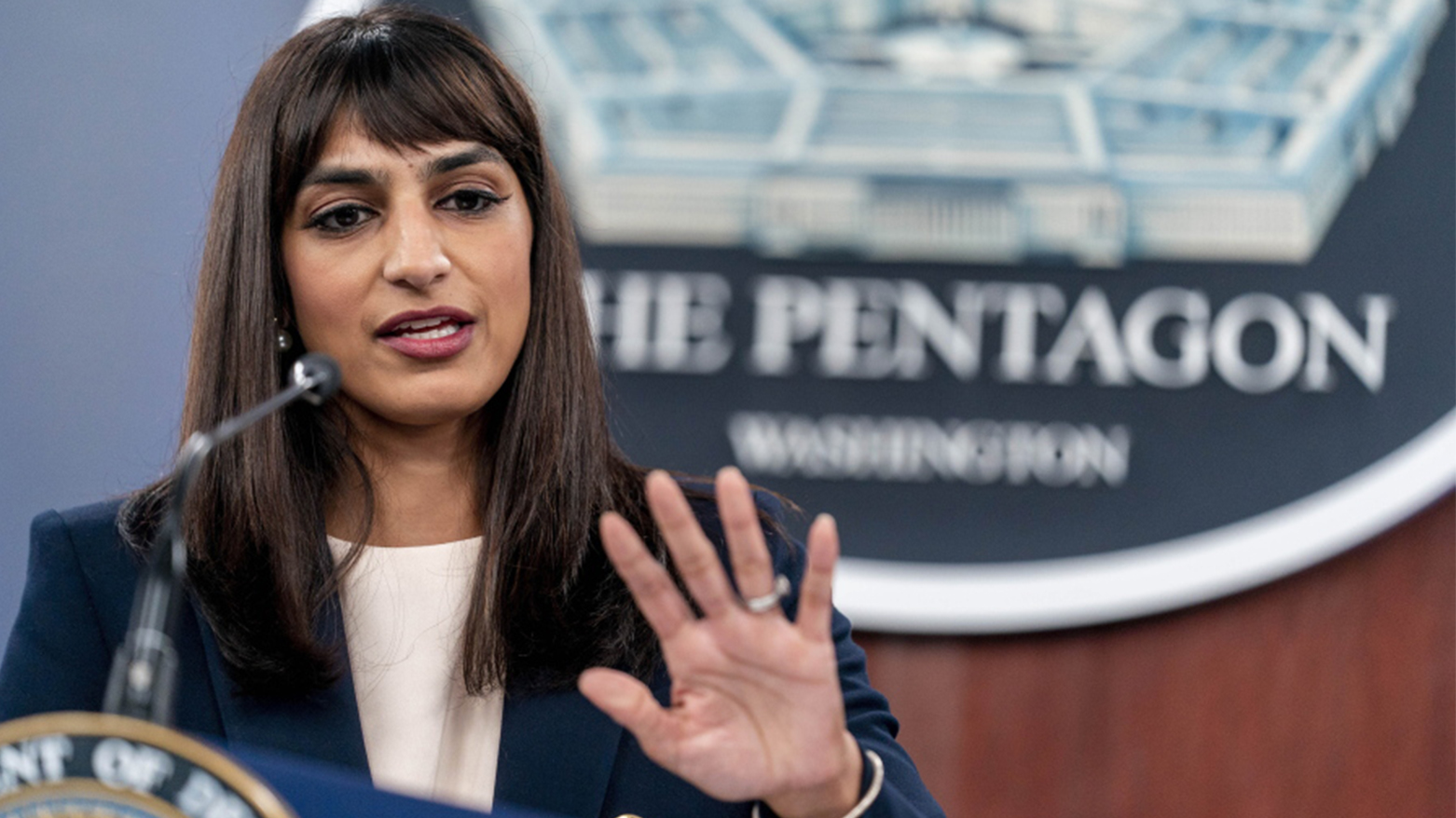We want to contain conflict between Israel and Hamas: US Defense Dept
American forces in the Middle East have come under increasing attacks since October as a result of the outbreak of the Israel-Hamas war on Oct. 7.

ERBIL (Kurdistan 24) - US Deputy Pentagon Press Secretary Sabrina Singh on Thursday held a press conference in Washington, in which she answered many questions relating to the Israel-Hamas war and the spread of violence against American installations in the region.
“Are these strikes working [against Iran-backed armed groups]? Look, we want to make sure that we can contain this conflict to Israel and Hamas,” Singh said.
“We have, of course, ways to communicate our message to Iran and Iran proxy groups. I think you're seeing that we did that very overtly yesterday with our strike on one of their facilities,” she added.
American forces in the Middle East have come under increasing attacks since October as a result of the outbreak of the Israel-Hamas war.
Reportedly, more than 60 such attacks have targeted American and Coalition bases in Iraq and Syria, with further skirmishes being observed in Yemen.
“And so we are minimizing what these groups are able to use, the capabilities that they are able to use, and we believe and we feel that these are proportionate responses,” Singh reiterated.
The media session comes as the Kurdistan Region’s capital has recently been bombarded by several drone and missile strikes, recently at Al-Harir Air Base, from an alliance of Shiite paramilitary forces branding themselves as the Islamic Resistance in Iraq (IRI).
Read more: Iran-backed group reportedly carries out new attack on Harir base
The IRI is believed to have communication channels on the encrypted mobile application Telegram, where the super-group has been publishing videos of its rocket and drone strikes on American bases.
The super-group is believed to be closely linked with Iran’s Islamic Revolutionary Guard Corps (IRGC).
“We know that Iran continues to arm, equip, train, support and financially support these groups,” she added, while noting “But we're continuing to assess the success of these strikes and of course, the protection and safety of our troops is a priority. And so if we feel that we need to strike again at a time and place of our choosing, we absolutely will.”
Singh’s messaging comes after Secretary of State Anthony Blinken visited the Iraqi premier, Mohammed Shia’ al-Sudani, in Baghdad on Nov. 5, where they mutually condemned the attacks on American installations in the country.
However, it has also put al-Sudani in a difficult position as it relates to his government’s competency in putting a stop to the attacks. The same armed groups are believed to be connected to the Popular Mobilization Forces (PMF), a Shiite paramilitary coalition sponsored by the Iraqi government.
Moreover, it was later reported by the Saudi-based news agency Asharq Al-Awsat on Sunday that the US Coalition forces at Al-Asad Airbase had cut “information exchange channels” with the Iraqi Armed Forces, as the US believed the base’s coordinates and security information were being leaked by insiders.
Nonetheless, Iran's influence in Baghdad is such that al-Sudani visited Tehran less than 24 hours after his meeting with Blinken. The challenge for al-Sudani, thus, is whether or not he can maintain equilibrium in Iraq’s relationship with each of the two foes without damaging the other’s geopolitical interests.
“It's important to remember that our mission in Syria and Iraq is to defeat ISIS. And Iran has made it very clear that they do not want a US presence in these countries, [...] but we continue to be there at the invitation of other governments and working with coalition partners in our mission to defeat ISIS,” Singh concluded.